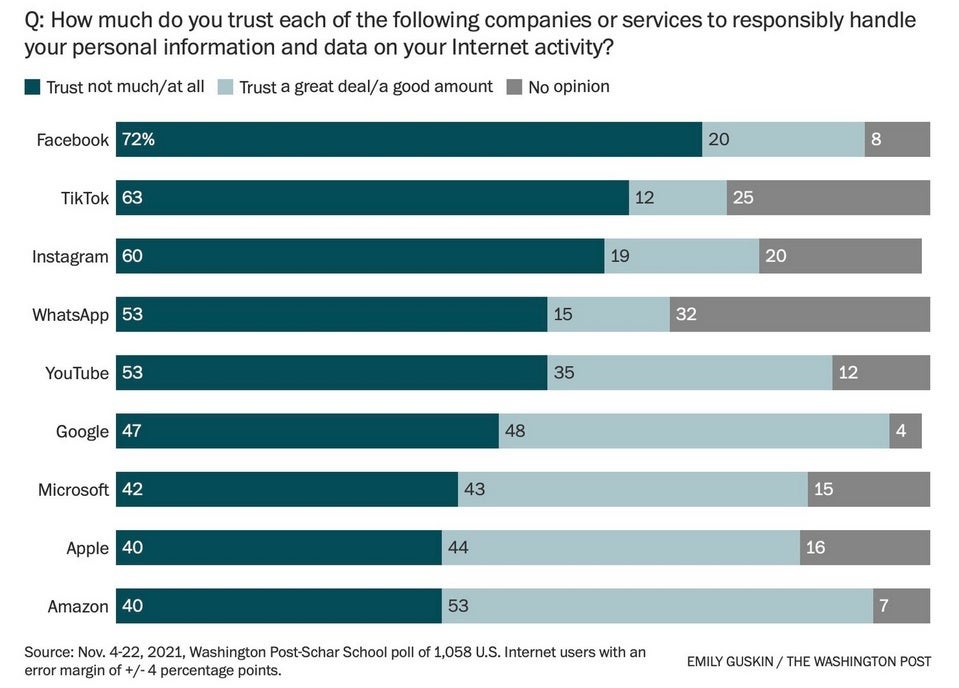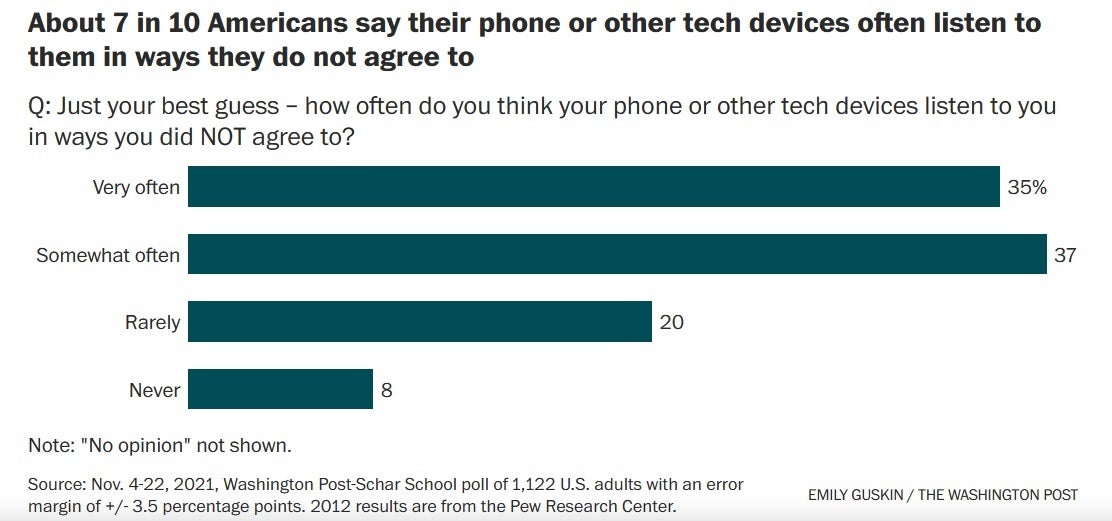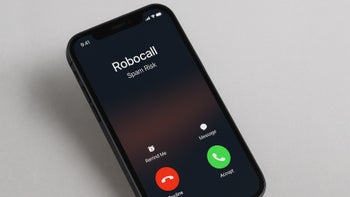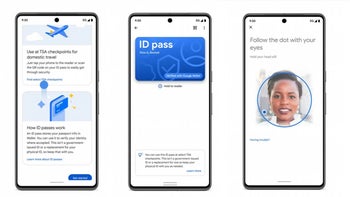Survey says: Amazon, Google more trusted with your personal data than Apple is

A new survey conducted by The Washington Post (via MacRumors) reveals that more people feel better with their personal data in the hands of Amazon and Google than Apple's. Companies that the public really doesn't trust when it comes to their personal data include Facebook, TikTok, and Instagram. The survey asked over 1,000 internet users in the U.S. how much they trusted certain companies such as Facebook, TikTok, Instagram, WhatsApp, YouTube, Google, Microsoft, Apple, and Amazon to handle their user data and browsing activity responsibly.
Amazon and Google are considered by survey respondents to be more trustworthy than Apple
Those surveyed were asked whether they trusted these firms with their personal data "a great deal," "a good amount," "not much," or "not at all." Respondents could also answer that they had no opinion about a particular company. 18% of those polled said that they trust Apple "a great deal" which topped the 14% received by Google and Amazon.

Amazon and Google are more trusted than Apple is with consumer's personal data according to a survey
However, 39% said that they trust Amazon by "a good amount" with Google picking up 34% of the votes in that same category. Only 26% of those answering said that they trust Apple by "a good amount." The first two responses, "a great deal" and "a good amount," are considered positive replies for a company. "Not much" and "not at all" are considered negative responses.
By adding up the scores in the positive categories, Apple tallied a score of 44% (18% said it trusted Apple with its personal data "a great deal" while 26% said it trusted Apple "a good amount"). But that placed the tech giant third after Amazon's 53% and Google's 48%. After Apple, Microsoft finished fourth with 43%, YouTube (which is owned by Google) was fifth with 35%, and Facebook was sixth at 20%.
Rounding out the remainder of the nine firms in the survey, Instagram placed seventh with a positive score of 19%, WhatsApp was eighth with a score of 15%, and TikTok was last at 12%.
Looking at the scoring for the two negative responses ("not much," or "not at all"), Facebook had a combined negative score of 72% making it the least trusted company in the survey. TikTok was next at 63% with Instagram following at 60%. WhatsApp and YouTube were both in the middle of the pact at 53% followed next by Google and Microsoft at 47% and 42% respectively. Apple and Amazon each had the lowest combined negative scores at 40% each.
74% of those surveyed called targeted online ads invasive
The survey also found that a whopping 82% of respondents found targeted online ads annoying and 74% called them invasive. Just 27% found such ads helpful. This response doesn't exactly track the 62% of iOS users who have used Apple's App Tracking Transparency feature to opt-out of being tracked while browsing websites and using apps. The tracking allows third-party firms to send users targeted ads online which is something that they cannot do to users who have opted out.
The 38% of iOS users who decided not to opt out of being tracked might have done so because they find it convenient to receive targeted ads about a certain product that they looked up online. But is ATT actually doing anything?
Marketing strategy consultant Eric Seufert said last summer, "Anyone opting out of tracking right now is basically having the same level of data collected as they were before. Apple hasn't actually deterred the behavior that they have called out as being so reprehensible, so they are kind of complicit in it happening."
The Financial Times says that iPhone users are being lumped together by certain behaviors instead of unique ID numbers in order to send targeted ads. Facebook chief operating officer Sheryl Sandberg says that the company is working to rebuild its ad infrastructure "using more aggregate or anonymized data."
Aggregated data is a collection of individual data that is used to create high-level data. Anonymized data is data that removes any information that can be used to identify the people in a group.
When consumers were asked how often do they think that their phones or other tech devices are listening in to them in ways that they didn't agree to, 72% answered "very often" or "somewhat often." 28% responded by saying "rarely" or "never."











Things that are NOT allowed: